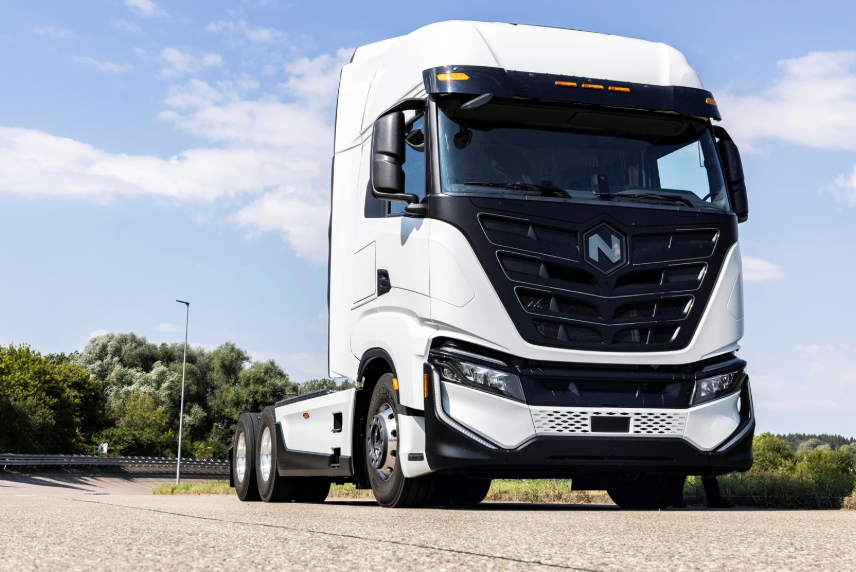24
January
High-Duty Electric Trucks the Future of Transport Industry
In the dynamic world, the transportation and logistics sector are constantly seeking innovative and sustainable solutions to meet its growing demands. One of the most promising and game-changing advancements is the emergence of heavy-duty electric trucks. These electric vehicles (EVs) are reshaping the landscape of goods transportation, providing an eco-friendlier and more effective substitute for conventional diesel-powered trucks.
As environmental awareness grows, and emission regulations become more stringent, heavy-duty electric trucks are poised to redefine the transport and logistics industry's future. Fueled by clean energy sources such as electricity, these vehicles significantly decrease carbon emissions and mitigate the ecological impact of transportation. Surpassing expectations, they boast impressive power and torque capabilities, overcoming conventional limitations associated with electric vehicles.
Furthermore, heavy-duty electric trucks offer numerous benefits beyond environmental sustainability. They are quieter, reducing noise pollution in urban areas, and require minimal maintenance compared to their diesel counterparts. Additionally, advancements in battery technology have increased their range, making them a viable option for long-haul operations.
The future of the transport and logistics industry lies in harnessing the potential of heavy-duty electric trucks. By embracing this technological shift, companies can enhance their operational efficiency, reduce their carbon footprint, and contribute to a more sustainable future.
Advantages of Heavy-Duty Electric Trucks
Heavy-duty electric trucks come with several advantages that make them a promising solution for the transport and logistics industry. First, these vehicles significantly reduce carbon emissions, helping companies meet their sustainability goals and comply with stringent environmental regulations. Electric trucks produce zero tailpipe emissions, which means they have a minimal ecological impact and contribute to cleaner air in urban areas.
In addition, heavy-duty electric trucks offer impressive power and torque capabilities. Contrary to popular belief, these vehicles can handle heavy loads and steep inclines without compromising performance. The advancements in electric motor technology have allowed for higher power outputs, enabling electric trucks to compete with their diesel counterparts in terms of strength and efficiency.
Moreover, the reduced noise levels of heavy-duty electric trucks contribute to a quieter urban environment, which promotes a more harmonious coexistence with residential communities and enhances the overall quality of life.
Current Challenges in the Transport and Logistics Industry
Despite their advantages, the widespread adoption of heavy-duty electric trucks faces challenges that demand attention. One of the main challenges is the development of a robust charging infrastructure. Electric trucks require a reliable charging station network to support their operation, especially for long-haul operations. The availability of charging stations along major transportation routes is crucial to ensure uninterrupted journeys and prevent range anxiety.
Another challenge is the limited range of electric trucks compared to diesel-powered trucks. Although advancements in battery technology have improved the range of electric vehicles, it is still a concern for long-haul operations. Trucking Companies should carefully plan their routes and charging stops to ensure timely deliveries and avoid disruptions in their supply chains.
Another challenge is the limited range of electric trucks compared to their diesel counterparts, necessitating careful route planning and charging stops to maintain timely deliveries and supply chain efficiency. While the upfront cost of electric trucks is higher, it is expected to decrease with technological advancements, achieving economies of scale and government incentives. Therefore, trucking companies must consider the long-term benefits and return on investment of electric trucks, considering factors such as fuel savings, maintenance costs, and potential government subsidies.
The Future of Heavy-Duty Electric Trucks
The future of transportation and logistics relies heavily on heavy-duty electric trucks. As technology continues to evolve, electric trucks will become more efficient, affordable, and capable of meeting several transportation needs. Advancements in battery technology, charging infrastructure, and powertrain efficiency will drive the widespread adoption of electric trucks in the coming years.
Furthermore, Government initiatives and support for electric trucks are playing a significant role in shaping the industry's future. Many countries have set ambitious targets to reduce greenhouse gas emissions and promote the transition to electric vehicles. Governments are providing incentives, grants, and subsidies to encourage trucking companies to adopt electric trucks, creating a favorable environment for growth and development.
Major players in the heavy-duty electric truck market are investing heavily in research and development to enhance performance, range, and charging capabilities. Companies like Tesla, Nikola, and Rivian are leading the way in developing electric trucks that can compete with their diesel counterparts in terms of power, range, and reliability. These advancements will further accelerate the adoption of heavy-duty electric trucks and revolutionize the transport and logistics industry.
Cost Considerations and Return on Investment for Electric Trucks
While the upfront cost of electric trucks may be higher, the long-term cost savings and return on investment are substantial. Electric trucks incur lower fuel and maintenance costs, resulting in significant savings in operational expenses. Government incentives and subsidies further offset initial costs, contributing to the financial viability of electric trucks.
Companies should conduct thorough cost-benefit analyses, considering factors such as fuel savings, maintenance costs, potential government incentives, and long-term sustainability goals. In many cases, the return on investment for electric trucks can be achieved within a few years, making them an economically attractive option.
Conclusion:
Heavy-duty electric trucks are undeniably at the forefront of shaping the future of the transport and logistics industry. These vehicles offer numerous advantages, including environmental sustainability, power capabilities, noise reduction, and minimal maintenance requirements, offering a compelling solution. As technology advances and economies of scale are realized, electric trucks will become more affordable, efficient, and capable of meeting industry demands.
The future is unequivocally electric, with heavy-duty electric trucks leading toward a greener and more sustainable transport and logistics industry. Embracing this evolution allows companies to enhance operational efficiency, reduce their carbon footprint, and contribute significantly to a more sustainable future.


Comments